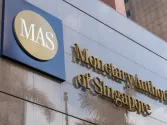Pawnshops, stores to offer banking services in the Philippines
The Philippine central bank mulls making sari-sari stores, payments centers and other store-like facilities banking conduits.
Banking officials have long known that many Filipinos feel “intimidated” by banks staffed with “formal-looking” officers.
They get their remittances through pawnshops and pay bills through “bayad” centers, offices that do not require them to “dress up”.
Thanks to pharmacies, pawnshops and money changers, more Filipinos are served while the formal banking network has not dramatically increased.
He added that pawnshops now dominate the money transfer market while payment centers are major players in bills payments.
As of end-2011, Bangko Sentral ng Pilipinas data showed, banks’ total operating network stood at 9,050, up from 8,870 in the first quarter of 2011.
Most branches are also located in major cities and urban centers, making banking transactions hard for those in the far-flung areas.
As of end-2011, 610 out of 1,634 municipalities, or 37 percent, had no banking office, leaving its population wanting for much-needed financial services,according to Bangko Sentral ng Pilipinas deputy governor Nestor Espenilla said.
But for the same end-period, there were 15,600 pawnshops and 9,500 money changers who were allowed to offer banking services like handling bills payments and remittance transactions.
“Pharmacies, pawnshops and other storefronts are (now) being used as access points to banking services,” Espenilla said.
This, according to Espenilla, eliminates one major reason why there are more Filipinos who are unbanked — the need to dress up just to go to a bank branch.
He added that this measure may also serve as an entry point for banks that may want to engage in microfinance operations by initially establishing an microbanking offices instead of a full branch.
According to BSP, financial inclusion is about tailor-fitting a response for a defined problem. It is about advancing the financial, social and economic well-being of those who are otherwise “excluded”.
For more.






















 Advertise
Advertise








